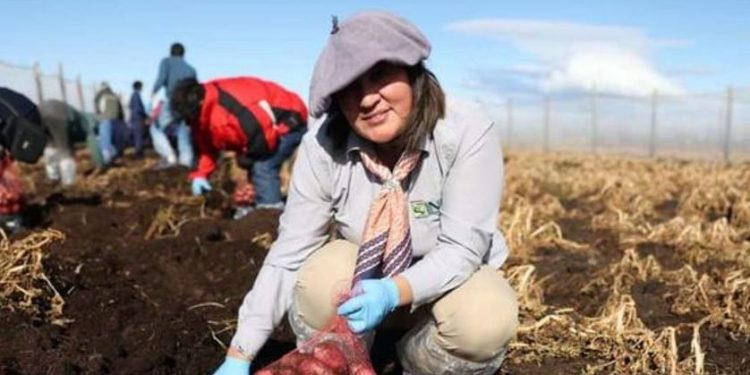In recent years, the Magallanes region of southern Chile has seen a significant increase in potato production thanks to two programs implemented by the Institute of Agricultural Research (INIA).
Potatoes play a vital role in the Chilean diet. In Magallanes, potato consumption per capita is approximately 50 kilograms per year and ranks first in terms of planted area in the region: 56 hectares according to the latest INIA report for 2022. However, in 2020, these numbers were under threat due to the pandemic. and in 2021, the blocking of international routes, leaving Magallanes at serious risk of food shortages.
In this context, the projects “Recovery of potato production and health in Magallanes” and “Transfer and application of technologies to increase potato production in Magallanes agriculture”, led by INIA Campenaique researcher Carolla Martínez, with financial support from the regional government, became relevant. .
These initiatives, developed over eight years, have contributed to the production of certified genetic material, increasing the supply of potato seeds to small and medium-sized farmers in the region.
To highlight these projects and disseminate the results obtained over the past three seasons, a gala event was held in the commune of Laguna Blanca, 60 km northwest of Punta Arenas. The event was attended by Deputy Minister of Agriculture Ignacia Fernandez, National Director of INIA Iris Lobos, as well as Regional Minister of Agriculture Irene Ramirez; INIA Campenaique Regional Director Erwin Dominguez, representatives of agricultural services, INIA specialists, managers and employees. This event also marked the 60th anniversary of the research institute.
Ignacia Fernandez, Deputy Minister of Agriculture:
“This is a fundamental project to produce potatoes for agriculture and food security of Punta Arenas and other communities in the region. Here we are strengthening the production of certified seeds that are delivered to farmers and can support food security for the most vulnerable households. with fresh and high-quality products.”
INIA National Director Iris Lobos spoke about the intensive research work carried out by the institute she heads:
“The milestone of building Chile’s southernmost potato plot shows us that when technology is harnessed for productive development, we can make great strides in terms of food security and sovereignty.”
“It also allows us to know how we will supply Magalhaes in a more autonomous way and thus stop being dependent on exports.”
Francisco Patiño, from the Association of Agricultural and Allied Farmers:
“It has been a great benefit for producers to be able to plant crops on our properties, as well as those of other associations.”
“INIA has done a great job over these 60 years and will continue to do so.”
Over the past three seasons, the site has produced a total of 130 tons of seed potatoes, providing more than 360 small and medium-sized growers each year with a free supply of the varieties they and consumers need most: Patagonia INIA, Puehue. Potatoes INIA and Yagana INIA.
In addition, starting in 2020, the program became part of the diet of the most vulnerable families in the region, supplying more than 15 thousand kilograms of potatoes per year for consumption, thereby contributing to the food security of the region.







